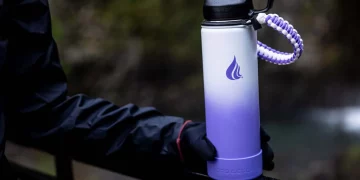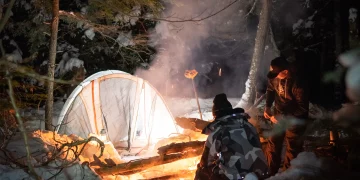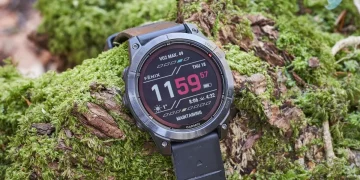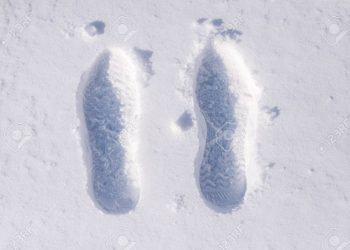When it comes to outdoor clothing, few pieces of gear spark as much debate and confusion as the jacket. Among the various types, hard shell and soft shell jackets are two of the most popular choices for active adventurers and outdoor enthusiasts. But while both serve the purpose of keeping you warm, dry, and comfortable in the wild, their specific functions and performance characteristics can differ significantly.
So, what’s the real difference between hard and soft shell jackets? Let’s dive into the world of high-performance outerwear and break it down clearly and succinctly. From weather resistance to breathability, durability, and fit, we’ll explore all the key factors that can help you decide which jacket is right for your next adventure.
1. Material and Construction: What’s Under the Hood?
The first noticeable difference between hard and soft shell jackets lies in their material composition and construction.
Hard Shell Jackets:
Hard shell jackets are typically made from waterproof, windproof, and durable fabrics like Gore-Tex, eVent, or other proprietary materials designed to block out the elements. These jackets are built with a stiff, sometimes noisy fabric and usually have a shiny or smooth finish. The focus here is on protection. They often have multiple layers, such as a waterproof membrane sandwiched between an outer protective fabric and an inner lining.
The rigid, tight weave of hard shell materials means they are very effective at shedding rain and blocking out wind. If you’re heading into a storm, this is the jacket to grab. These jackets can have taped seams, waterproof zippers, and adjustable hoods to ensure maximum protection from precipitation and wind.
Soft Shell Jackets:
On the other hand, soft shell jackets are crafted from more flexible, breathable, and stretchy materials like nylon, spandex, and polyester blends. These fabrics offer some degree of water resistance, but they aren’t fully waterproof like hard shells. Instead, soft shells focus on providing a more comfortable fit with greater mobility.
The soft feel and stretchy construction of soft shells make them ideal for activities like hiking, climbing, and skiing, where you need freedom of movement and comfort without sacrificing too much protection from the elements.
2. Weather Protection: Shielding Yourself from the Elements
Hard Shell Jackets:
When the weather turns harsh, hard shell jackets are your go-to choice. The waterproof nature of these jackets provides a significant advantage in heavy rain, snow, or sleet. Their windproof capabilities also help protect against howling winds at higher altitudes or in open landscapes. Whether you’re caught in a torrential downpour or battling fierce mountain winds, hard shell jackets keep you dry and shielded.

However, it’s important to note that while hard shells keep water and wind out, they may not be as breathable as soft shells. That means that during intense physical activity, sweat may build up inside the jacket, which can make you feel damp or overheated. Many high-end hard shells address this issue with pit zips or other venting options to help regulate body temperature.
Soft Shell Jackets:
Soft shell jackets, while water-resistant, don’t provide the same level of protection from heavy rain or snow. They are not waterproof but can handle light to moderate showers or snow flurries. In drier climates or during mild weather conditions, soft shell jackets can be an excellent choice because they offer superior breathability.
The main advantage of soft shells is that they allow for better air circulation, reducing sweat buildup during activities that involve a lot of movement, like climbing, skiing, or trail running. On the flip side, during heavy rainfall or strong winds, you’ll find that soft shells simply don’t hold up as well as hard shells.
3. Breathability: Stay Cool While You Move
Hard Shell Jackets:
Breathability is where hard shell jackets can fall short. The waterproof membranes are designed to block water, but they also tend to trap moisture inside. As a result, during high-intensity activities or warm weather, your body heat and sweat may have difficulty escaping, leading to a feeling of dampness inside.
To address this, some hard shells use more breathable technologies, such as Gore-Tex Pro or Polartec NeoShell, which aim to balance waterproof protection with breathability. Additionally, hard shells often come with features like pit zips or mesh-lined vents to help air circulate and allow sweat to evaporate more easily.
Soft Shell Jackets:
Breathability is one of the primary selling points of soft shell jackets. Due to their more permeable fabrics and lack of a completely waterproof membrane, they are much more breathable than hard shells. This makes them a fantastic choice for high-output activities like mountain biking, trail running, or cross-country skiing, where the body produces significant heat and sweat.
The key trade-off, however, is that soft shells provide less protection from heavy weather conditions, as the materials are typically not fully waterproof and may let water seep through in heavy downpours or long periods of wet weather.
4. Durability: How Long Will They Last?
Hard Shell Jackets:
Durability is often one of the key benefits of hard shell jackets. They are built to last and can withstand abrasion, tear, and puncture damage far better than soft shell jackets. If you’re heading into rough terrain, exposed rock faces, or alpine environments, a hard shell jacket will hold up to the demands of the conditions.
However, some hard shell fabrics, especially lightweight ones, can be prone to scratching and tearing when exposed to rugged environments. Over time, the waterproof coating can degrade, but it can often be restored with specialized waterproofing treatments.
Soft Shell Jackets:
Soft shells are typically less durable than hard shells, but they make up for this with flexibility and comfort. The fabrics used in soft shells are usually designed to stretch and move with your body, which means they are more susceptible to wear in extreme conditions. Rough rock climbing, scrubby brush, or high winds can wear down soft shell jackets faster than hard shells.
That said, the stretchiness and comfort of soft shells mean they are often chosen for activities that require freedom of movement. As long as you aren’t constantly pushing the limits of durability, a soft shell can hold up well over time.
5. Fit and Comfort: Moving with Ease
Hard Shell Jackets:
The fit of hard shell jackets is usually more structured, designed to fit closer to the body for optimal weather protection. They tend to be stiffer, which can limit movement, especially in the shoulders and arms. Some hard shell jackets come with articulated or pre-curved elbows to allow for more freedom of movement, but the overall feel tends to be a bit less comfortable for extended periods of use.
Despite the rigid fit, hard shells can be layered easily with insulation, making them versatile for a wide range of conditions, from cold to wet to windy.
Soft Shell Jackets:
Soft shells excel in the comfort and flexibility department. The stretchy materials used in their construction allow for unrestricted movement. Whether you’re reaching for a hold while climbing or swinging your arms during a brisk hike, the soft shell will move with you.
Soft shell jackets also tend to feel lighter and softer on the skin, making them an ideal choice when comfort is your top priority. If you’re after something you can wear all day without feeling stiff or constricted, a soft shell is probably the better choice.
6. Weight and Packability: Travel Light

Hard Shell Jackets:
Hard shell jackets are generally lightweight but not always the most packable. They tend to be bulky compared to soft shells, especially when they include more insulation or advanced features like fully taped seams or storm hoods. However, many manufacturers offer packable versions that can be stashed into their own pocket, making them easier to carry when not in use.
Soft Shell Jackets:
Soft shell jackets are typically more compressible and easier to pack than hard shells. Their lightweight, stretchy fabric makes them ideal for packing into a backpack or gear bag without taking up too much space. For activities where you need to save on space and weight, a soft shell can be a more practical option.
7. Price: Is It Worth the Investment?
Hard Shell Jackets:
Generally speaking, hard shell jackets are often more expensive than soft shells, especially when made with high-end materials like Gore-Tex or eVent. This is due to the advanced technology required to make them waterproof, windproof, and durable. While they can be a larger upfront investment, their long-term durability and performance in extreme conditions may justify the cost.
Soft Shell Jackets:
Soft shell jackets tend to be more affordable, particularly those made from simpler materials. While they don’t have the same level of weather protection, their flexibility, comfort, and breathability often make them worth the price, especially for activities in milder conditions.
8. Best Uses: Which Jacket for Which Activity?
Hard Shell Jackets:
- Mountaineering: Best for harsh conditions and extreme weather.
- Backpacking in wet climates: Provides the best weather protection.
- Skiing/Snowboarding: Great for heavy snow and wind protection.
- Cycling: Good for protecting against rain and wind on the road or trail.
Soft Shell Jackets:
- Climbing: Provides the flexibility and comfort needed for movement.
- Running: Offers breathability and freedom of movement.
- Hiking: Ideal for mild to moderate conditions, where movement is key.
- Cross-country skiing: Lightweight and breathable, perfect for active pursuits.
Final Thoughts: Choosing the Right Jacket for Your Needs
Both hard shell and soft shell jackets have their place in the world of outdoor gear. The decision between the two depends largely on your activity, the weather, and your personal comfort preferences. If you’re planning to battle the elements in the high mountains or in a downpour, a hard shell is likely your best bet. However, if you need something more flexible, breathable, and comfortable for activities that involve a lot of movement, a soft shell could be exactly what you’re looking for.





















